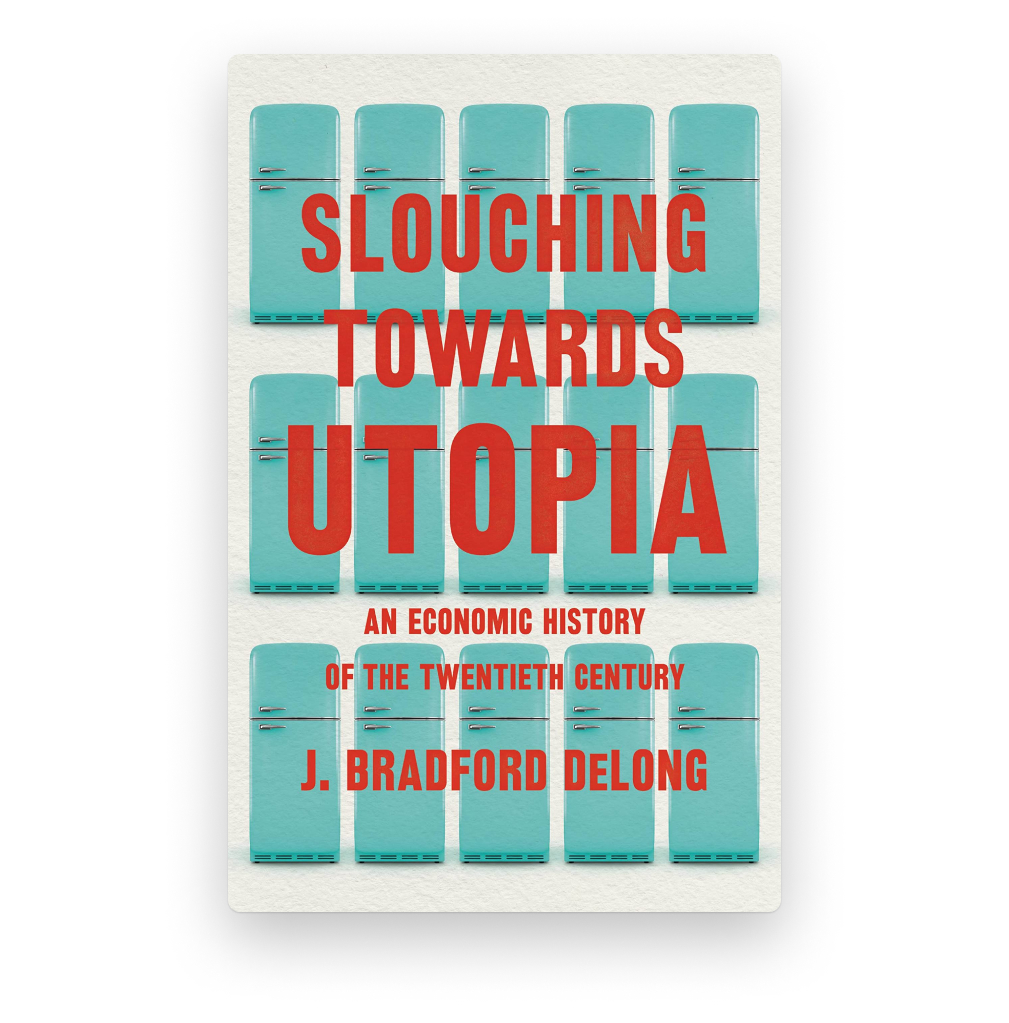
Sponsored By: Streak
This article is brought to you by Streak, the only CRM built entirely inside Gmail to help founders and entrepreneurs manage their entire business from their inboxes.
Every once in a while it’s good to zoom out.
This newsletter is normally about how technology businesses are evolving, and can succeed or fail through strategy. I extract lessons from the events of the past few years (occasionally longer) so we can better understand what might happen next. But what if we’re living through a bigger shift that requires a longer lens to see? What if our economic future does not fit a simple extrapolation of the recent past? What if the tectonic plates of civilization are moving beneath us in a way that you need to go back centuries to understand?
If you want highly credible answers to these massive questions, I recommend Slouching Towards Utopia—a new book that came out to critical acclaim this week by economist Brad DeLong. It does what all the best nonfiction books do: change the way you understand the world around you.
For me, the most important thing the book did was help me understand a feeling I’ve had since around 2010—this turns out to be an important year for DeLong—that human progress is faltering. In this time, stock valuations went wild, but real GDP growth stagnated. One big social revolt after another has unfolded, in every part of the globe, with no signs of stopping. Depopulation is coming for many of the world’s largest economies. Climate change is no longer theoretical. It’s to the point where Timothée Chalamet is promoting his movies by saying stuff like “societal collapse is in the air.”
But, at the same time, we’re still seeing pretty incredible advances in many areas of technology, and economic progress continues its march forward.
What is happening?
As a startup founder or entrepreneur, your email inbox is the hub of your business. Whether you’re building partnerships, hiring your team, raising funds, or selling your product or service, everything flows through your inbox.
Streak is a CRM that helps you stay on top of each process with pipelines for sales, hiring, fundraising, and more – directly inside Gmail. It gives you the power of a spreadsheet in your inbox and you can be up and running in less than 2 minutes.
Streak also includes free email tools like mail merge to send personalized mass email sequences in Gmail and email tracking to see when your emails have been read by recipients.
You can get started for free in minutes with customizable templates and an import tool for your existing contacts.
A Grand Narrative of Progress
A few years ago Tim Urban (aka Wait But Why) posted this graphic in an article about AI, and asked “what would it feel like to stand here?”
Of course, he reminds us that nobody can see the future, so it would feel like this:
In that article, Urban predicted that AI would unlock a rapid increase in human progress—which is why the scale of the Y-axis is so huge and makes all past progress look squashed. But since we don’t know what’s next and certainly can’t “feel” it yet, the graph should probably look more like this edited version I just made:
Slouching Towards Utopia explains why the rate of progress shot dramatically upward 152 years ago (an oddly specific number, I know, but DeLong claims human history changed dramatically around the year 1870), and then began to slow down and enter uncertain territory around 2010. He calls this span of time from 1870 to 2010 “the long twentieth century.” Some parts of this story were already familiar to me, other parts radically—yet convincingly—challenged my worldview.
DeLong’s grand narrative of human progress goes something like this:
Before 1870, there was century after century of slow progress. Innovation happened, but randomly and inefficiently. The vast majority of humanity struggled for food and shelter. Anytime new technology came along, it would unlock a temporary bump in population growth and then civilization would get stuck with resource scarcity all over again. The only people who had abundance were those who devised clever (and not-so-clever) ways of taking resources from others.
Then, three big forces came online around 1870 to produce incredible growth that reshaped the world and created the anthropocene. They are:
- Industrial research labs
- The modern corporation
- Globalization
Without organized research programs, innovation came accidentally and inefficiently. Without corporations to deploy the new technology at scale, inventions remained a curiosity or a proof of concept. And without global trade and communication, they would only have local impact. Once these three engines all started working together, technological progress began to compound at rates previously unimaginable, and it led to all these graphs you see people like Bill Gates and Steven Pinker tweeting all the time:
But unlike the people that like to tweet these graphs all the time, DeLong is unflinching in his criticism of the world that capitalism created.
The Limits of The Market
DeLong goes beyond the usual “and also there’s some inequality” type of caveat that cheerleaders of progress usually sprinkle in to appear credible, and argues that capitalism is only capable of giving owners of valuable property more of what they want, and all the other benefits that have come to everyone else have been purely incidental. We’re fortunate that the incentives have been aligned to some extent, but it’s important to understand that all of this is a side effect of the system, not the goal.
He says, “The history of the long twentieth century cannot be told as a triumphal gallop, or a march, or even a walk of progress along the road that brings us closer to utopia. It is, rather, a slouch. At best.”
The story of 1870 to 2010 is the story of market forces driving unprecedented technological progress and creating incredible wealth, while human societies tried to figure out how to harness it towards more humane ends and limit the inhumane downsides. What happens next depends on our understanding of what markets can realistically do, and our ability to coordinate to make the market work within basic limitations and towards basic goals most people can agree on. The problem is, in the post-2010 world, consensus is near impossible.
If real economic and technological change is the star of Slouching Towards Utopia, then social ideology is the co-star. And there are two thinkers that DeLong chooses to represent the two most fundamental points of view.
First is a name we’re all familiar with, Friedrich von Hayek, who believed that any attempt to interfere with the market in the name of social justice would inevitably go wrong, and by trying you’d end up destroying the one thing the market is actually capable of producing: wealth. DeLong summarizes this point of view as “the market giveth, the market taketh away, blessed be the market.”
Against this ideology, DeLong chooses a thinker I honestly had not heard of before: Karl Polanyi. He argued that this was not a stable principle to build a society around. Most people won’t accept the raw outcome of the market, they expect to be able to live in durable communities, to have basic economic stability, and to be treated equally politically and equally before the law. The aphoristic summary of Polanyi’s philosophy is “the market was made for man, not man for the market.”
Ever since the market became a radically transformative force in 1870, societies have experimented with different variations on Polanyi’s philosophy. Keynesian management of the business cycle is one version. Marxist communism is another. Fascism and nationalism represent a third. They all have different versions of justice and different means to achieve it, but all are united in the sense that they are engaged in a basic struggle to harness the market towards some other human ends.
For a while in the 1990s it seemed like the answer to this question was mostly settled, history had ended, and we would live forevermore in a tranquil neoliberal consensus. But now, in the post-2010 era, the world is full of violently diverging views on how to handle the problem of the market. This makes the future as uncertain as ever.
What is Missing
Slouching Towards Progress has a wealth of historical anecdotes, and I basically buy his central thesis—I just wish he proved it more.
For example, let’s take one of the central claims of the book, that the industrial research lab, the modern corporation, and globalization are what caused economic progress to exponentially compound starting in 1870. This makes sense to me, but I was expecting to hear a lot more detail about what happened in 1870 to unlock these corporations and their research labs. What knowledge had to be discovered or social patterns of organization had to emerge for this to be possible? What was different about their managerial DNA that enabled their model to be so successful compared to previous corporate forms?
Instead, the one chapter that’s dedicated to answering this question gives us a short version of the life story of Nikola Tesla (world famous electrical engineer) and Herbert Hoover (mining engineer turned business magnate turned US President). Those are compelling stories! But they don’t tell us about what happened in 1870 that caused stories like those to be possible. And they definitely don’t prove with any sort of concrete evidence that these factors, rather than others, are the main drivers of global prosperity.
I bet there is a compelling history to be told of how corporations and financiers came together to create the modern economy, but it’s sadly not really in this book. And I think this is a real shame because I suspect we are living through another period where the corporate form is rapidly evolving, and historical precedents would be good to know about. The internet-native remote-first startup seems to be a new managerial model that is on its way to eating every industry—it would be cool to learn the details of how shifts like these have played out before!
Similarly, what were the actual “industrial research labs” that he is talking about? I can think of a few famous examples, and he particularly focuses on Nikola Tesla and Thomas Edison, but are labs like that really where the vast majority of important innovation came from? We also hear about innovation emerging from garages and universities—what about that? Perhaps by “industrial research lab” DeLong means more broadly the funding of systematic research with the aim of commercialization. But as a fan of progress, I would have loved to learn more details about how this whole research industrial complex came to exist, and how we can nurture it or maybe evolve it into something totally new.
But perhaps these gripes are just me wanting to read a different book. To be fair to DeLong, the grand narrative he weaves feels so true and interesting that it has me wanting to learn the details.
And he does anticipate my critique. In one of the most interesting passages of the book, he defends the “grand narrative” approach. Excuse the long quote, but it’s worth it:
We have to tell grand narratives if we are to think at all. Grand narratives are, in the words of that bellwether twentieth-century philosopher Ludwig Wittgenstein, “nonsense.” But, in a sense, all human thought is nonsense: fuzzy, prone to confusions, and capable of leading us astray. And our fuzzy thoughts are the only ways we can think—the only ways we have to progress. If we are lucky, Wittgenstein said, we can “recognize… them as nonsensical,” and then use them as steps “to climb beyond them… [and then] throw away the ladder”—for, perhaps, we will have learned to transcend “these propositions” and gained the ability to “see the world aright.”
What Comes Next
Like I said in the intro, my favorite thing about Slouching Towards Utopia was that it helped me frame the fuzzy feelings I had about how the world seems to be struggling: the market is the engine of economic progress, but we are increasingly unable to point it towards humane ends.
The thing I’m thinking about now is perhaps something new is around the corner. Perhaps we are in a new version of the period of time just before 1870, where all the ingredients were in place for a completely transformed world, but they just needed to be put together.
It makes me think about the internet, and how young it is. It makes me think of new forms of human organization and culture that are just beginning to emerge. It makes me think of just how smart we all can be and how much we can do if we harness the internet properly. To me the most exciting thing is not any single innovation, it’s the meta-innovations like “the modern corporation” and “the industrial research lab” from 1870 that are the keys to unlocking many other innovations. Are we on the cusp of discovering new structures like these that could take us even further? What would happen if we deliberately tried to find them?
The story of what happens next has not yet been written. We all have the chance to write our names in it.
The Only Subscription
You Need to
Stay at the
Edge of AI
The essential toolkit for those shaping the future
"This might be the best value you
can get from an AI subscription."
- Jay S.
Join 100,000+ leaders, builders, and innovators

Email address
Already have an account? Sign in
What is included in a subscription?
Daily insights from AI pioneers + early access to powerful AI tools
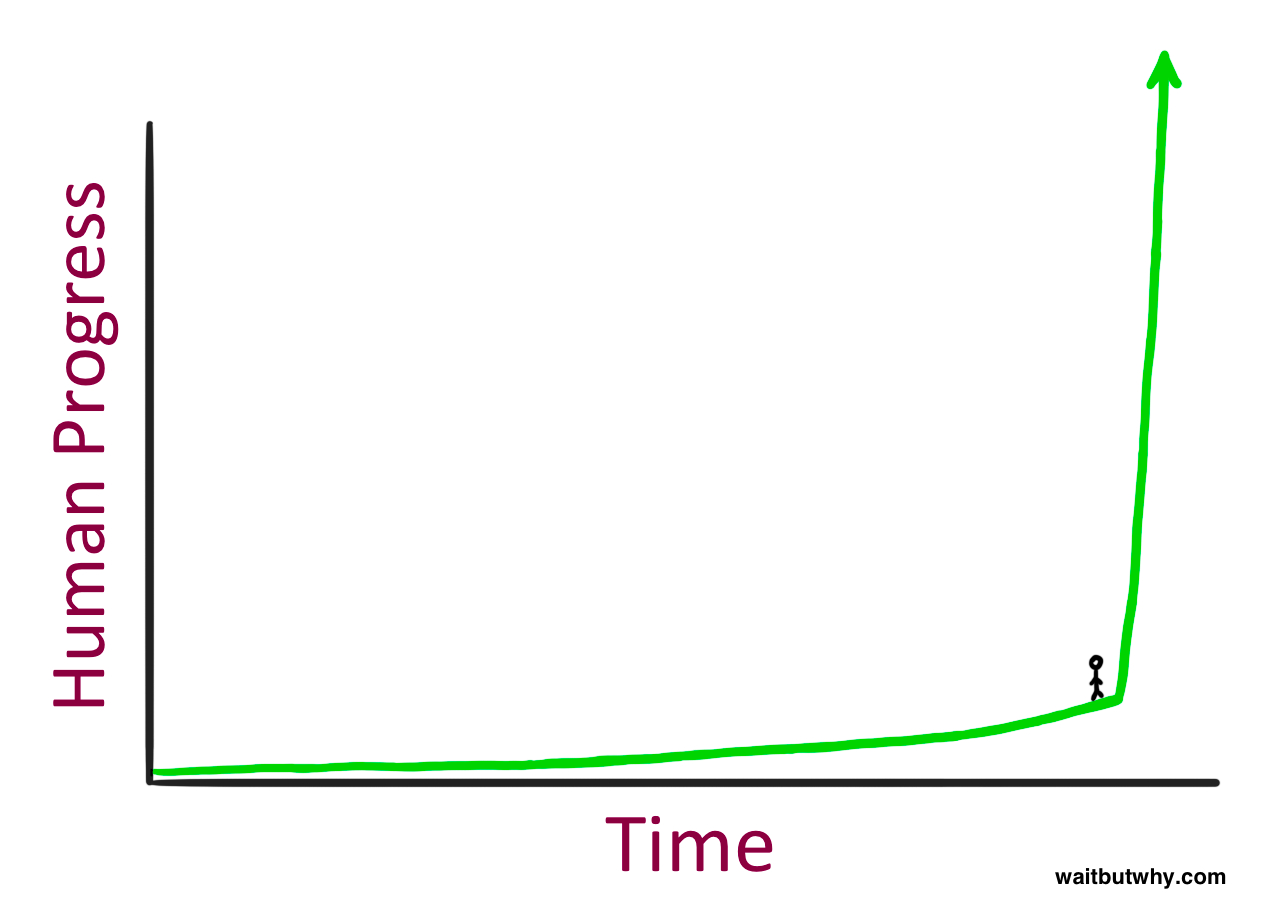
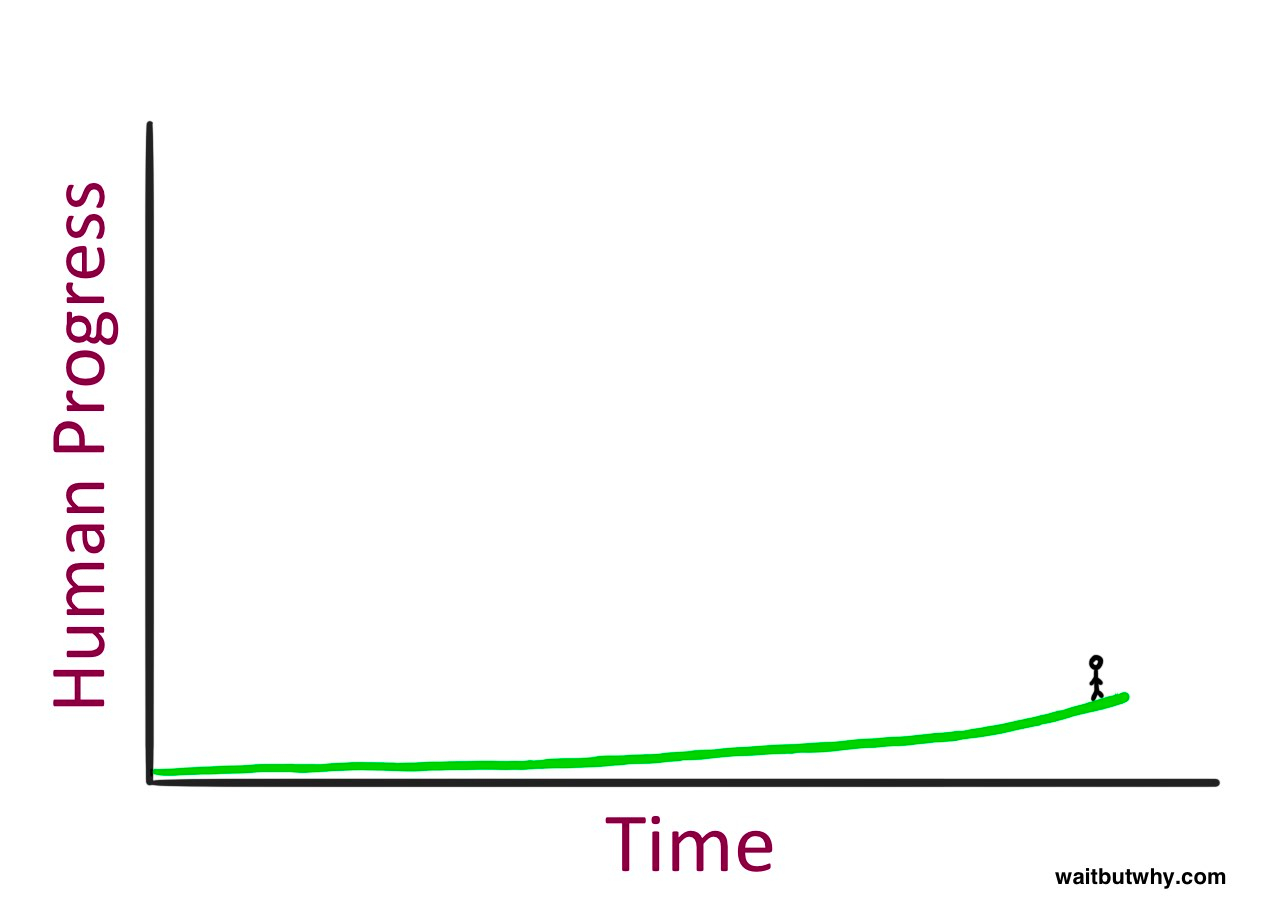
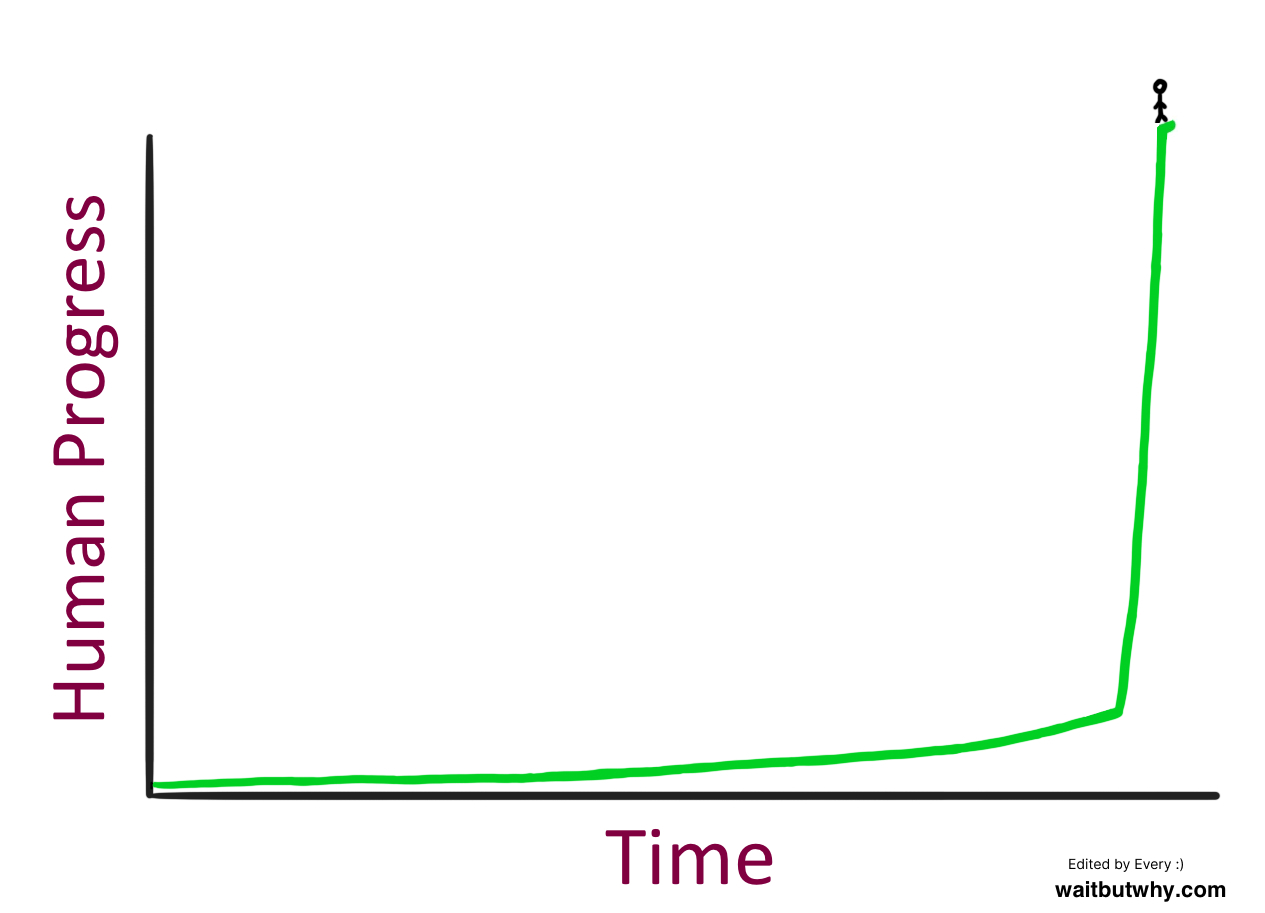
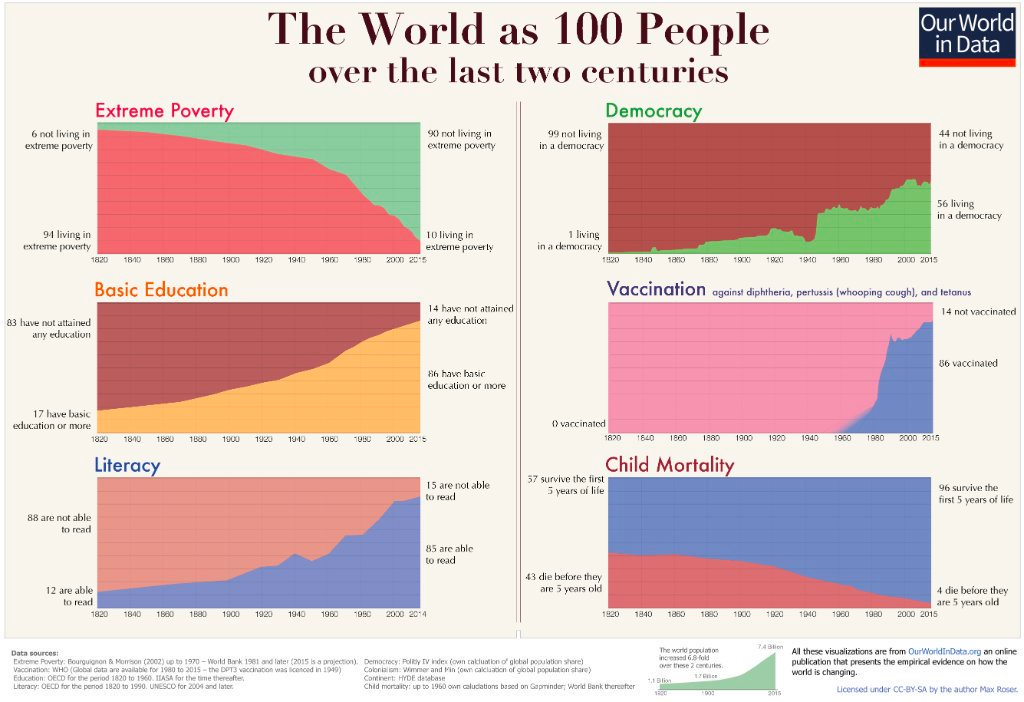
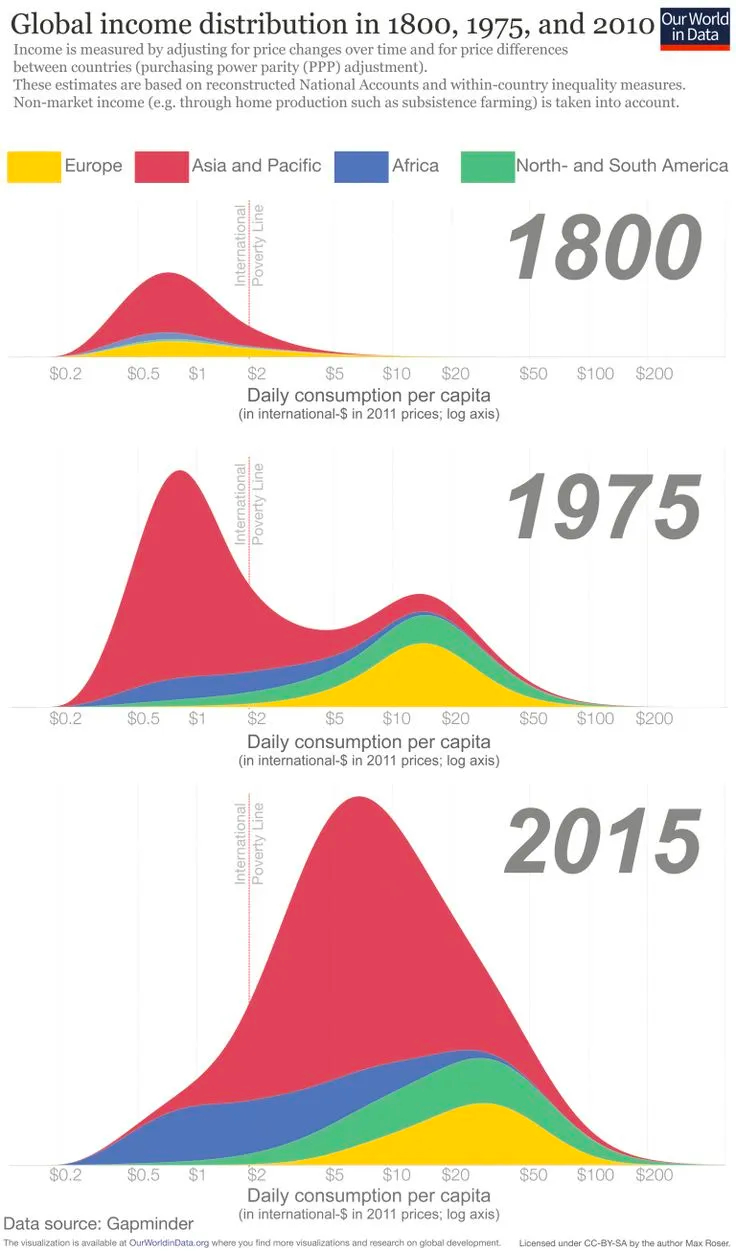







Comments
Don't have an account? Sign up!
Guess that we are to explore ways to build teams / communities around different AI helpers to facilitate discussions / achieve progress